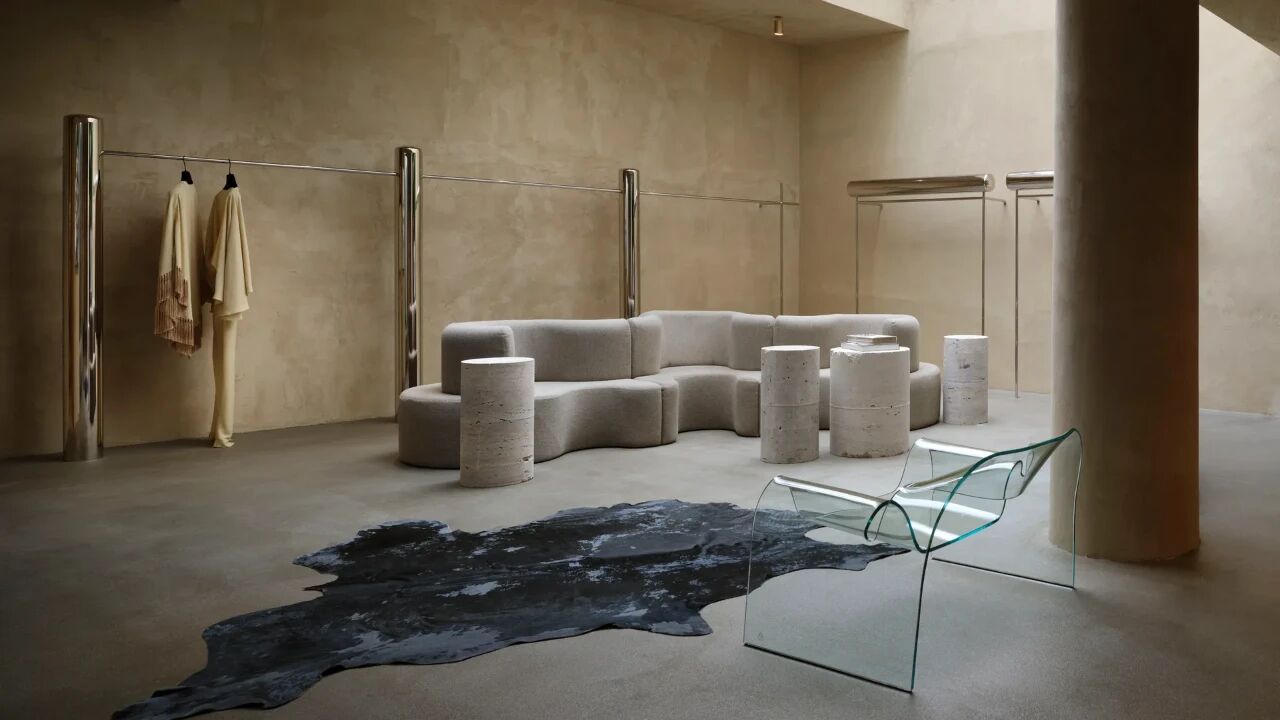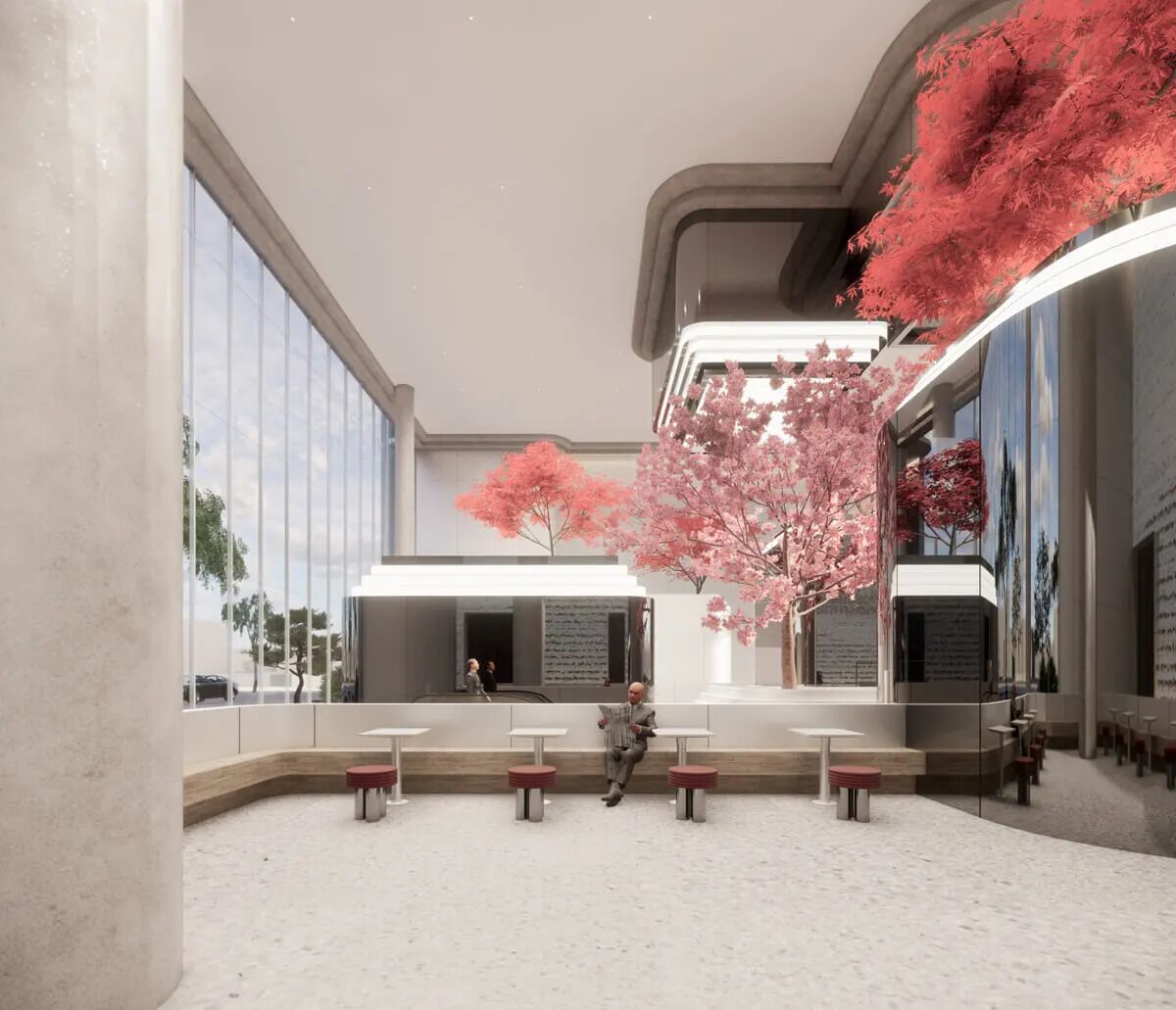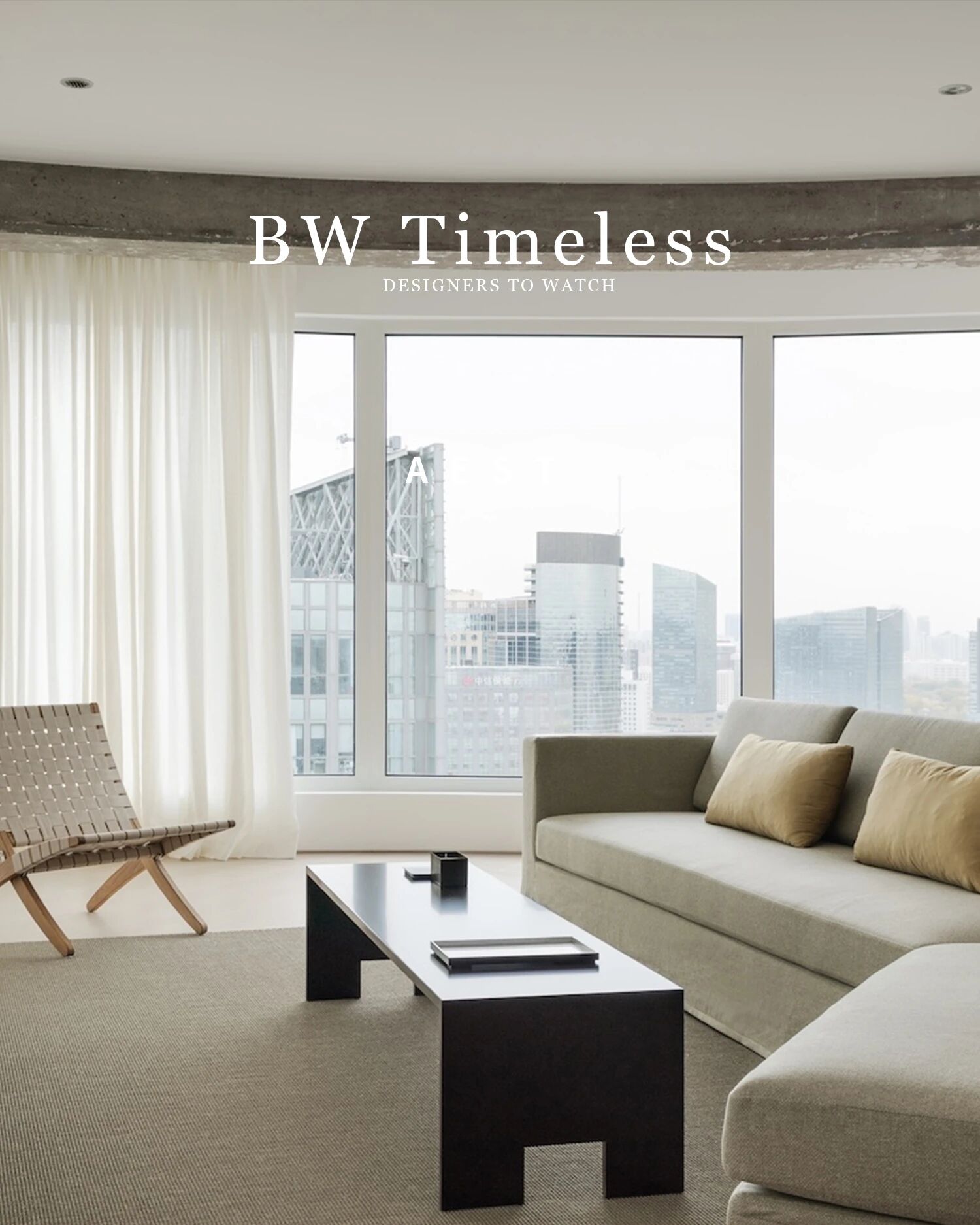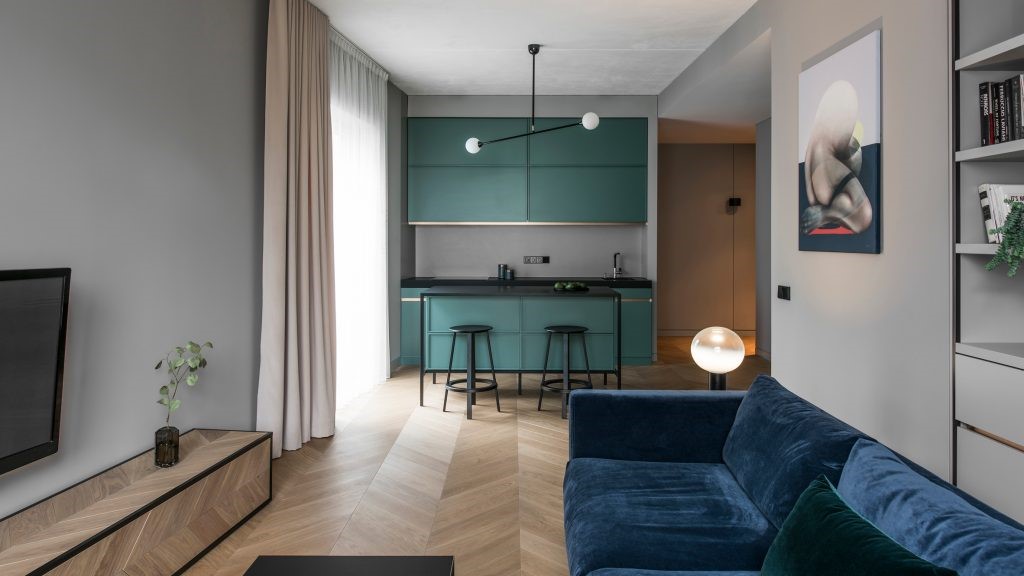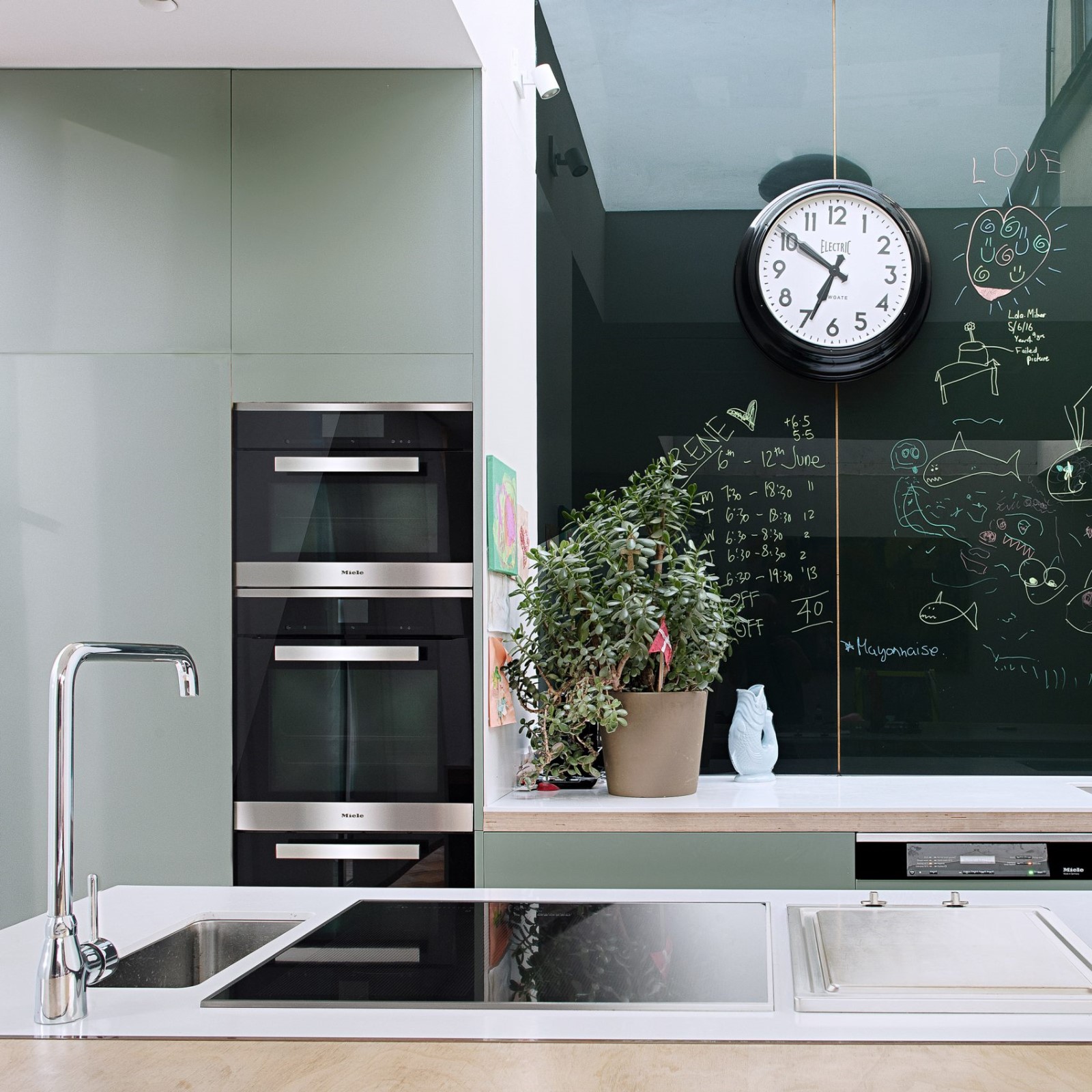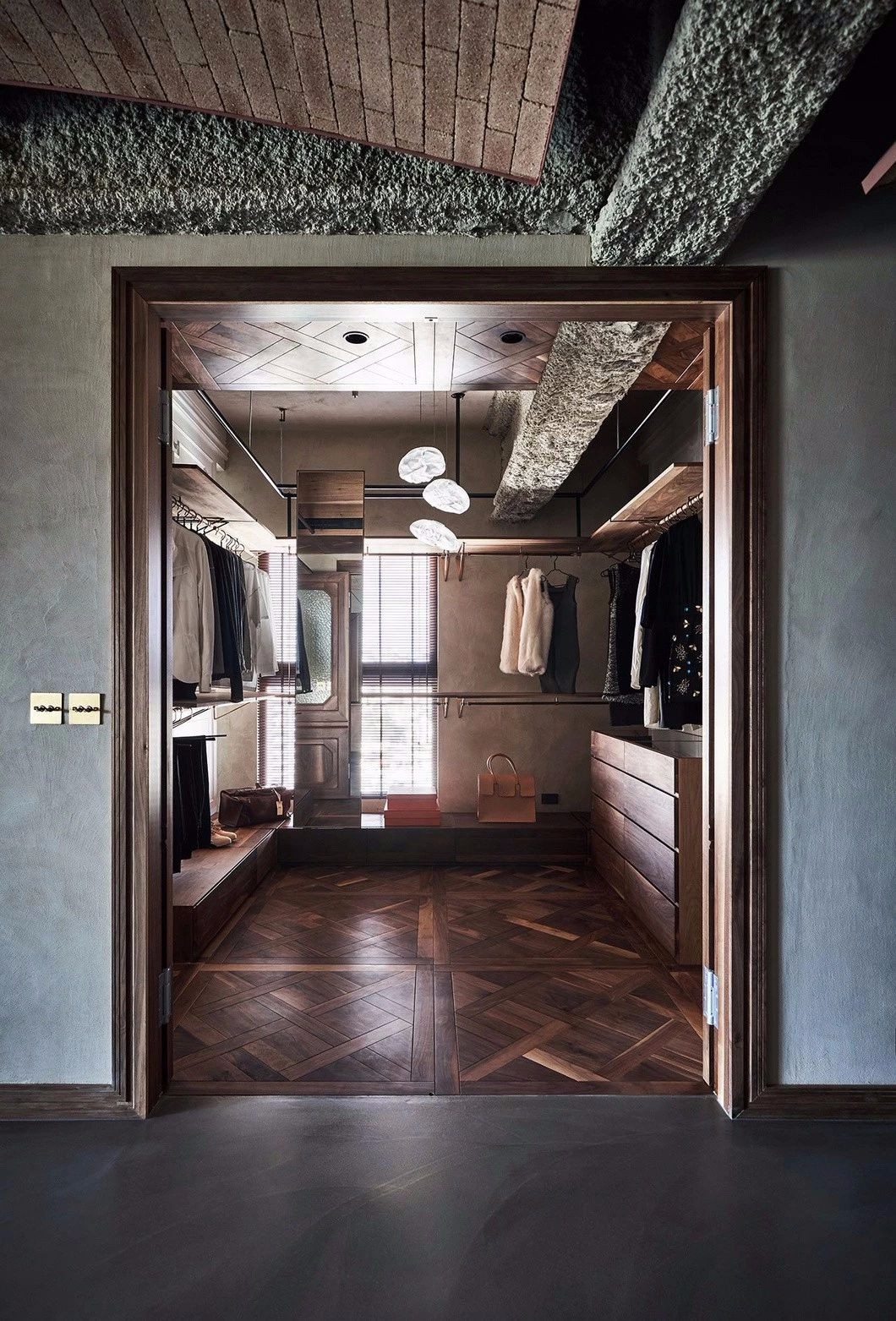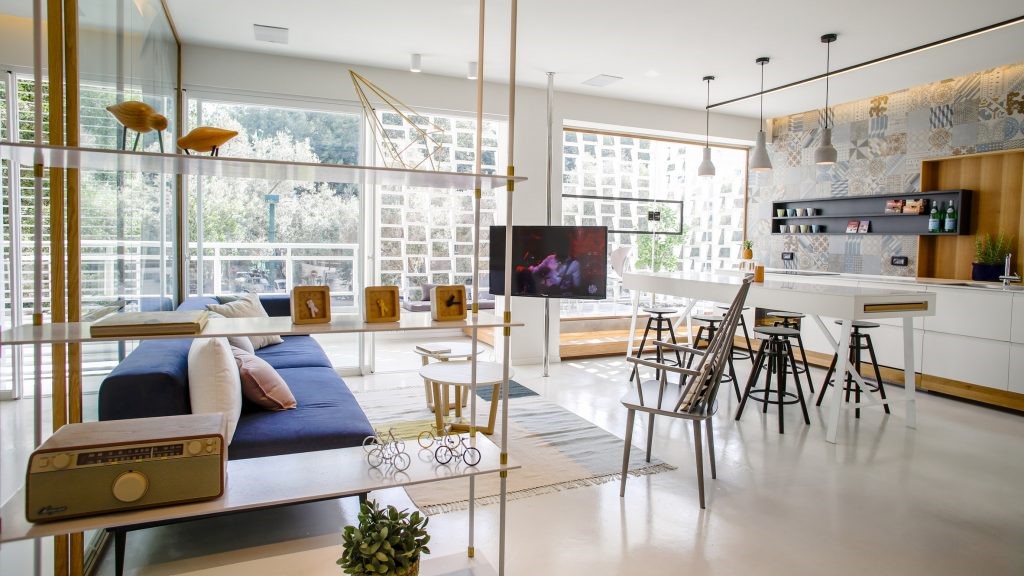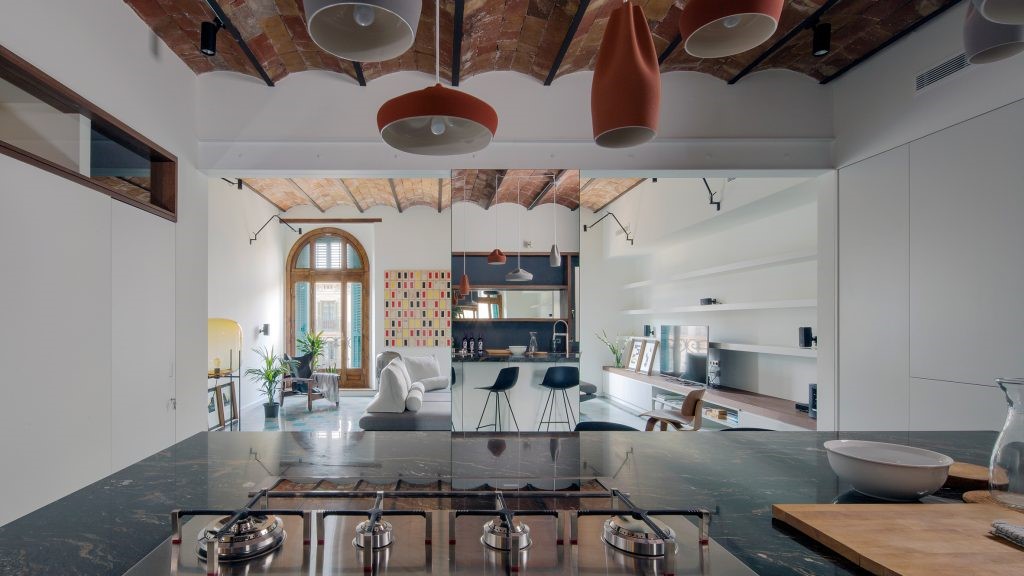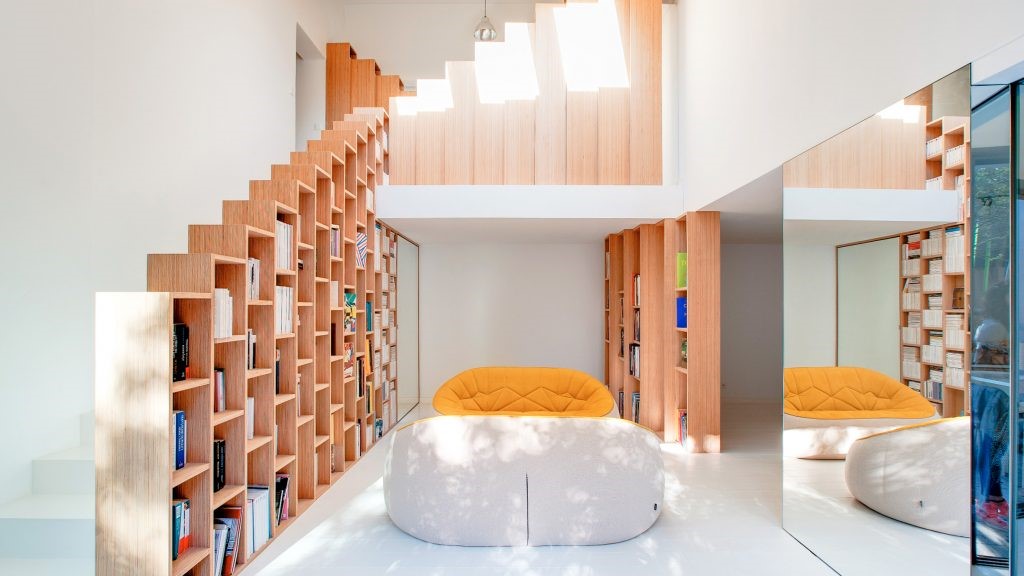Stunning beach house called Point Lonsdale House finished by Edition Office in Australian city of the same name 名为PointLonsdale House的惊艳海滩别墅,由澳大利亚同名城市的编辑办公室完成
2019-09-11 18:02
In a sunny neighbourhood, on a quiet street in Point Lonsdale, Australia, design teams at Edition Office have recently completed a beautiful beach house, aptly named Point Lonsdale House. From a distance, Point Lonsdale House looks very linear in its shape and basic structure. Perhaps the most unique aspect of the house is the way designers built it as four distinct pavilions that are all interlinked, making them simple to move between but clear and organized in overall layout.
在澳大利亚朗斯代尔角的一条安静的街道上,一个阳光明媚的街区,编辑办公室的设计团队最近完成了一座美丽的海滨别墅,恰如其分地命名为PointLonsdale House。从远处看,朗斯代尔角屋的形状和基本结构看起来非常线性。也许这座房子最独特的一面是设计师们把它建成四个彼此相连的不同的亭子,使得它们之间的移动很简单,但在整体布局上是清晰的和有组织的。
Each pavilion is clearly defined by its own vaulted roof, each one sitting at a jaunty angle that at once keeps the attention of onlookers but also suits the natural ebb and flow of the land the house sits on. These roofs mark out the different parts of the home, each of which has a separate function of its own.
每个展馆都由自己的拱形屋顶清晰地定义,每个展馆的角度都很愉快,既能吸引旁观者的注意力,又能适应房屋所在土地的自然起伏。这些屋顶标明了房屋的不同部分,每个部分都有各自的功能。
The site upon which the house sits allotted a space for it that runs east-west. The front of the house runs along and sits close to the property’s southern border in order to leave space behind for the enjoyment of the long, lush gardens that sit towards the north side. Each of the four pavilions that make up the larger house features its own in a series of private courtyards.
这座房子所在的地方为它分配了一个东西向的空间。房子的前部一直延伸着,靠近房产的南部边界,以便留下空间来享受位于北侧的繁茂的花园。组成这座大房子的四个亭子中的每一个都在一系列的私人庭院中有自己的特色。
In these courtyards, visitors find smaller gardens and decks designed for outdoor relaxation and escape. Each of these decks is part of an extensive relationship that the house has with blended outdoor spaces; designers intentionally built several different access points to the beautiful outside environment from each pavilion, making the beach-y outdoors easily accessible at all times no matter where you are in the building.
在这些庭院里,游客们会发现一些较小的花园和甲板,专为户外休闲和逃生而设计。这些甲板中的每一层都是房屋与混合户外空间之间广泛关系的一部分;设计师们有意在每个展馆中建造了几个通往美丽外部环境的不同入口,使得无论你身在建筑物的何处,都能随时随地都能很容易地到达海滩般的户外。
When the beach house was first conceptualized, designers pictured it as an island in the midst of their chosen coastal landscape. From a distance, it does, indeed, look a bit like its own floating piece, elevated above most other houses in the area. Part of the house is cantilevered slightly over the ground in an effort to level out the terrain while doing minimal damage to the natural area.
当海滩别墅第一次被概念化时,设计师们把它描绘成他们选择的海岸景观中的一个岛屿。实际上,从远处看,它确实有点像它自己的漂浮部分,高于该地区大多数其他房屋。房子的一部分是轻微地悬挑在地面上,以努力使地形平化,同时对自然区域造成最小的破坏。
Although building teams avoided clearing the local land in order to build the home, previous loss of brush and plants from weather and other changes to the area took place in a small, non-permanent way. As such, designers created the home with the expectation that, in coming years, the natural gardens from outside the plot will grow back up to its perimeter and blend visually with the gardens that belong to the actual home.
虽然建筑团队为了建造房屋而避免清理当地的土地,但以前由于天气和其他变化而失去的灌木丛和植物都是以一种小的、非永久性的方式发生的。因此,设计师创造了这个家,期望在未来的几年里,地块外的自然花园会长到它的周界,并在视觉上与属于实际家园的花园融合在一起。
The house itself, which appears slender thanks to the way the four pavilions are situated along the linear plot, looks monolithic on first view. The use of rough timber establishes a particular aesthetic suitable to a beach house. While viewers from the street can certainly get a sense of the home’s style from the street, most of the dynamic spaces that are used by the family living there now sit amongst the gardens towards the back of the plot, hidden from view by the angled roofs we mentioned previously.
这座房子本身看起来很纤细,这得益于这四个亭子沿着直线的布局,从第一视角看,它看上去是铁板一块的。粗糙木材的使用确立了一种特别的美学适合海滩房屋。虽然街上的观众当然可以从街道上感受到房子的风格,但现在住在那里的家庭所使用的大部分动态空间,都坐落在靠近情节后面的花园之中,隐藏在我们前面提到的倾斜屋顶的视线之外。
The house boasts two separate sleeping zones, each slightly removed towards the calming gardens at the back in order to establish them as places of respite. These two zones are linked by a central common area that draws owners and any overnight guests visiting into a more public living space together towards the beginning and end of each day.
房子有两个独立的睡眠区,每个区都稍微向后面的平静花园走去,以便把它们作为休息的地方。这两个区域由一个中央公共区域联系在一起,吸引所有人和任何隔夜的客人来到一个更多的公共生活空间,朝着每天的开始和结束。
This common living space is entirely covered in timber boards, continuing that monolithic sense from the exterior of the home right on inside the doors. The central placement of this room serves to spatially define the different functions of the building, besides just facilitating bonding with family and friends, helping the space make sense.
这种共同的生活空间完全覆盖在木板上,从房屋的外部到门的内部继续是整体的感觉。这个房间的中心位置用来在空间上定义建筑的不同功能,除了促进与家人和朋友的结合,帮助空间变得有意义。
Rather than having its own deck and courtyard, like the rooms in the two sleeping zones do, the living room joins seamlessly directly into the wider back gardens through sliding glass patio doors. From there, the heart of the house has easy access to the coastal scrub and wider landscape beyond the home’s own lawn.
与其拥有自己的甲板和庭院,就像两个睡眠区的房间一样,客厅通过滑动的玻璃露台门无缝地连接到更广阔的后花园。从那里,房子的心脏可以很容易地进入海岸的灌木丛和更广阔的景观,超出了自己的草坪。
On the other side of the central room is another outdoor space, but one that is much different. Rather than leading straight into the gardens and greenery, the longest timber wall on the western end of the room opens right up, thanks to a pivoting wall panel, into an actual outdoor living space that’s more like an open air room than just a patio or deck.
在中央房间的另一边是另一个室外空间,但却有很大的不同。 而不是直接进入花园和绿色植物,最长的木材墙在房间的西端打开,感谢一个旋转的墙板,进入一个实际的室外生活空间,更像是一个露天的房间,而不仅仅是一个露台或甲板。
Designers organized this space to intentionally feel like the interior of the house is spilling right out into the sunshine and towards the beach in a way that’s free flowing and informal. The aesthetic overall, both inside and out, is traditional, rugged, and suitable to a beach house, shedding most of the separations and limitations of urban housing so that it feels almost more like camping out in a tent, despite the fact that it has all the amenities of modern living.
设计师们把这个空间组织起来,有意地感觉到房子的内部正以一种自由流动和非正式的方式向阳光和海滩蔓延。 整体的美学,无论是内部还是外部,都是传统的,坚固的,适合于海滩住宅,摆脱了城市住宅的大部分分离和限制,使它感觉更像是在帐篷里露营,尽管它拥有现代生活的所有便利设施。
Further down from the outdoor room is another pivoting wall that leads from the common room into a slightly more private deck than the others that sit on the edges of the house. This deck sits between the kitchen and the lounge space, providing owners and visitors with a space for shade and quiet that isn’t visible from elsewhere on the land. Throughout the house, this whole system of decks, patios, and outdoor rooms link up the four pavilions of the building.
在离室外房间更远的地方是另一堵旋转墙,它从公共房间通向一个比坐在房子边缘的其他人稍微多一点的私人甲板。这层甲板位于厨房和休息室之间,为业主和游客提供了一个在陆地其他地方看不到的阴凉和安静的空间。整个房子,整个系统的甲板,露台,和室外房间连接起来,四个楼阁的建筑物。
Besides just providing great flow of movement physically from room to room, the linking of indoor and outdoor spaces also facilitates good airflow thanks to coastal breezes, as well as great flow of natural sunlight. This actually makes the home more energy efficient, eliminating the need for an air conditioning system.
除了在不同房间之间提供巨大的物理流动外,室内和室外空间的连接也有助于良好的气流,这得益于海岸微风,以及自然阳光的大量流动。 这实际上使家庭更节能,消除了空调系统的需要。
 举报
举报
别默默的看了,快登录帮我评论一下吧!:)
注册
登录
更多评论
相关文章
-

描边风设计中,最容易犯的8种问题分析
2018年走过了四分之一,LOGO设计趋势也清晰了LOGO设计
-

描边风设计中,最容易犯的8种问题分析
2018年走过了四分之一,LOGO设计趋势也清晰了LOGO设计
-

描边风设计中,最容易犯的8种问题分析
2018年走过了四分之一,LOGO设计趋势也清晰了LOGO设计































